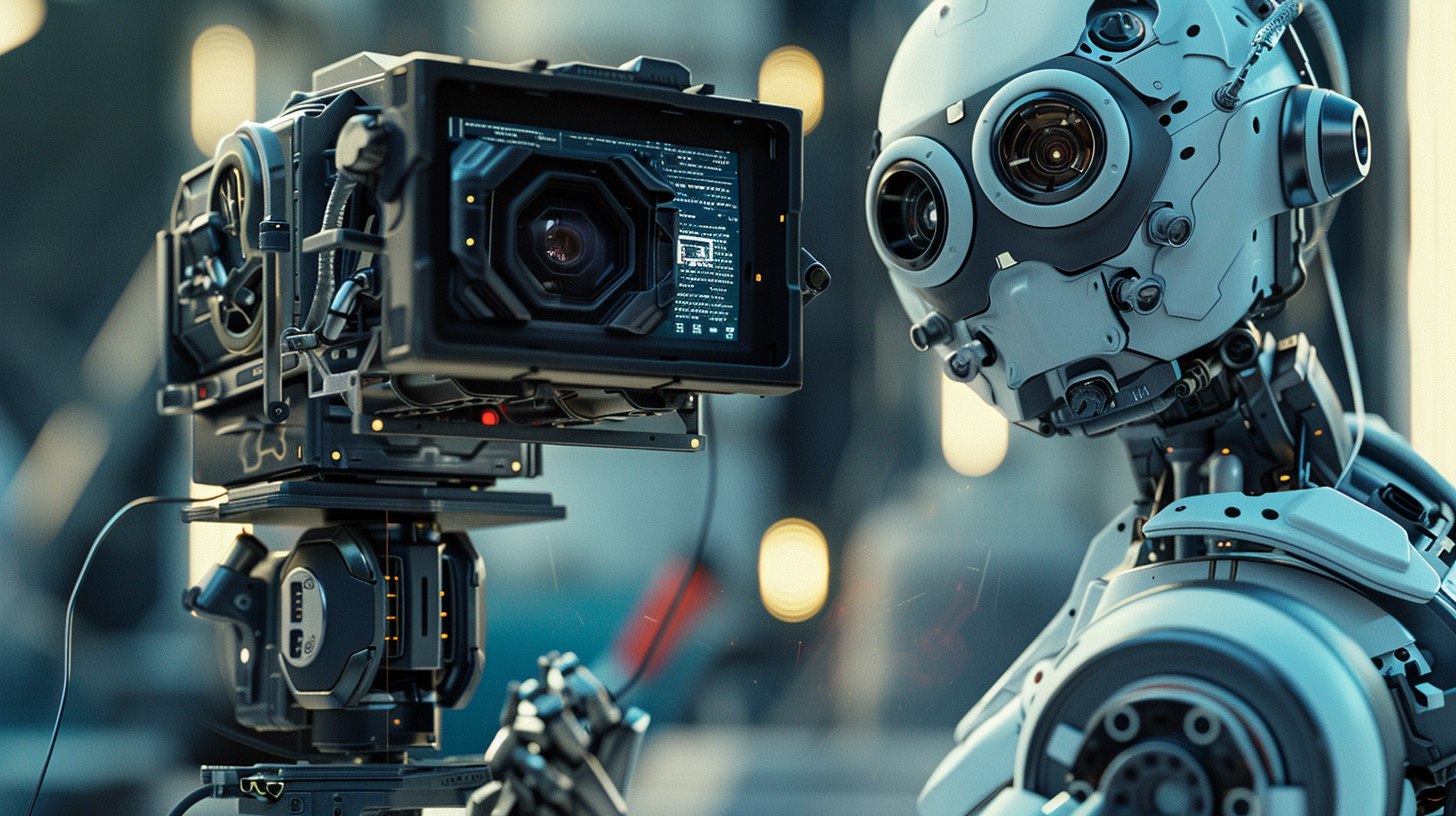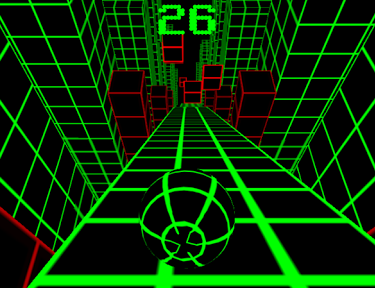Introduction
Artificial intelligence (AI) is transforming the film industry, revolutionizing how movies are conceptualized, produced, and marketed. This article explores the profound ways AI is shaping the future of film production, from streamlining workflows to enhancing creativity. AI has become a game-changer in film production, automating repetitive tasks, analyzing data, and even contributing to creative decisions. From scriptwriting to visual effects, AI tools enable filmmakers to save time and reduce costs while expanding creative possibilities.
What is AI in film production?
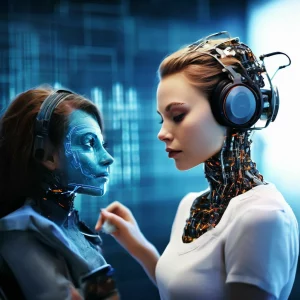
AI in film production refers to the use of advanced machine learning algorithms and automated systems to assist in various stages of filmmaking. From scriptwriting and pre-visualization to post-production editing, AI tools are increasingly becoming essential in creating efficient workflows.
The Rise of AI in Film Production
AI has quickly become a powerful tool in the film industry. It started with small roles like helping edit scenes or improving special effects. Now, it can even help write scripts or predict what kind of movies people will enjoy. As technology grows, AI is becoming a big part of how movies are made.
How AI is Transforming Film Creation
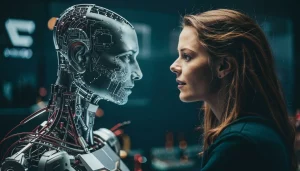
1. Enhanced Scriptwriting and Storytelling
AI tools like ChatGPT and ScriptBook can analyze audience preferences and provide ideas or complete scripts that align with current trends. These systems ensure content remains engaging while significantly reducing the time required for brainstorming.
2. Pre-Production Efficiency
AI assists in casting decisions by analyzing actor profiles and matching them to roles. It also aids in budgeting and scheduling, predicting potential delays or cost overruns based on data from previous productions.
3. Revolutionary Visual Effects (VFX)
AI-powered tools like DeepMind and NVIDIA Omniverse automate complex tasks such as rendering, background creation, and motion tracking. This allows filmmakers to produce high-quality effects in less time and at a lower cost.
4. Personalized Marketing Campaigns
AI analyzes audience behavior and preferences to tailor marketing efforts, from targeted ads to personalized trailers. This ensures maximum reach and engagement for a film’s release.
The Benefits of AI in Film Production
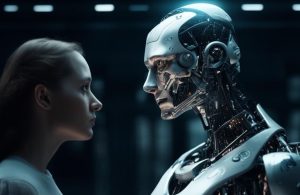
AI offers many benefits:
- Saves Time: AI tools can speed up tasks like editing or creating effects.
- Cuts Costs: Automating parts of production can save money.
- Better Marketing: AI helps target the right audience with tailored ads.
- New Ideas: AI tools can suggest fresh ideas for scripts or scenes.
The Role of AI in Film Production
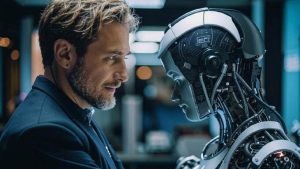
AI plays an important role in every step of filmmaking.
- Writing Scripts: AI tools can draft scripts based on popular trends.
- Casting: AI matches actors to roles by analyzing their past performances.
- Special Effects: AI makes it easier to create stunning visuals.
- Marketing: AI helps plan campaigns to attract the right viewers.
AI Helps Directors Plan Better
AI tools are helping directors plan their work more efficiently. They can use AI to predict how scenes will look or how long filming will take. AI can even suggest camera angles or lighting setups to make scenes more visually appealing. This helps directors save time and focus on creative decisions.
AI Improves Editing
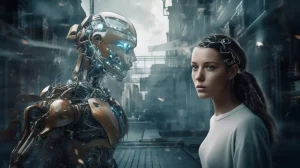
Editing is a time-consuming part of making movies, but AI is making it faster. AI can cut scenes, add transitions, and even suggest edits that make the story flow better. Editors can then fine-tune the work, making the process smoother and quicker while still keeping a personal touch.
AI in Animated Films
AI is transforming animated movies by speeding up the creation of characters and environments. It can help animators design lifelike movements and expressions with less effort. AI tools also allow small teams to produce high-quality animations that were once possible only for large studios.
AI Helps Predict Movie Success
AI can analyze past movies and audience preferences to predict how well a new movie might do. It looks at factors like story type, casting choices, and marketing plans to give filmmakers useful insights. This helps producers make smarter decisions and reduce the risks of making expensive movies.
AI Brings New Storytelling Possibilities
With AI, filmmakers can explore new ways to tell stories. For example, interactive movies that change based on audience choices are becoming more popular. AI can create multiple storylines and adapt them in real time, giving viewers a unique experience every time they watch.
Streamlining Pre-Production with AI
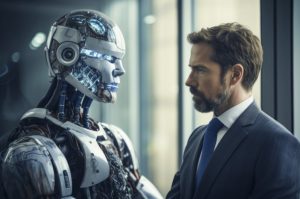
AI plays a crucial role in the pre-production stage by assisting with:
- Scriptwriting: Tools like ChatGPT and AI story generators suggest plots, dialogues, and characters.
- Casting Decisions: AI-powered platforms analyze audition tapes and identify the best talent for a role.
- Budget Optimization: AI algorithms predict costs and provide suggestions to minimize expenses.
These applications allow filmmakers to focus more on storytelling and less on logistical complexities.
AI Makes Filming Safer
AI is helping make film sets safer for everyone. It can check for risks, like unstable props or dangerous stunts, and alert the crew. AI tools also let filmmakers create realistic action scenes without putting actors in harm’s way, using digital effects instead.
AI Speeds Up Costume Design
Creating costumes for movies can take a long time, but AI is helping designers work faster. AI can suggest styles based on the movie’s setting or characters. Designers can use these ideas to create unique costumes while saving time and effort.
AI Translates Movies for Global Audiences
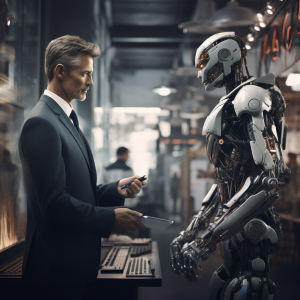
AI is making it easier to share movies with audiences worldwide. It can quickly translate scripts and add subtitles or voiceovers in many languages. This helps filmmakers reach people from different cultures and makes their stories more accessible to everyone.
AI Helps with Music and Sound
AI tools are now being used to create music and sound effects for movies. They can compose background scores or enhance sounds like footsteps or explosions. This makes it easier for filmmakers to create the perfect atmosphere for their scenes.
Enhancing Visual Effects and Animation
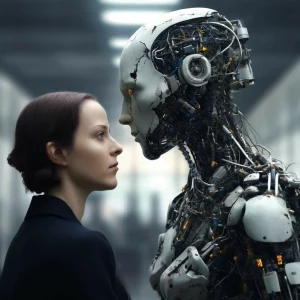
AI has significantly improved the efficiency and quality of visual effects (VFX) and animation. Key advancements include:
- Realistic CGI: AI creates lifelike characters and environments, reducing the time spent on manual rendering.
- Motion Capture Simplification: AI enhances motion capture by processing raw data faster and more accurately.
- Scene Enhancement: AI improves image quality, color grading, and lighting in post-production.
These innovations not only save time but also elevate the visual appeal of movies.
Challenges in AI-Driven Film Production
While AI offers numerous advantages, challenges remain:
- Creativity Concerns: Over-reliance on AI might limit human creativity.
- Ethical Issues: The use of AI-generated actors and voices raises copyright and authenticity concerns.
- Job Displacement: AI automation risks reducing employment opportunities for traditional roles in the industry.
Addressing these challenges will be crucial for a balanced adoption of AI in filmmaking.
AI and Global Collaboration
AI is helping filmmakers work together from different parts of the world. It allows teams to share ideas, edit footage, and create special effects without being in the same location. This makes global collaborations easier and opens the door for diverse and creative projects.
The Future of AI in Film Production
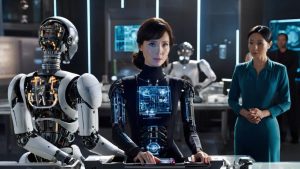
The future of AI in film looks exciting. AI will continue to make movie-making faster and cheaper while giving creators new tools to tell better stories. It’s not about replacing people but helping them work smarter. As technology improves, AI will play an even bigger role in creating amazing movies.
The future of AI in film production is promising, with emerging possibilities such as:
- Interactive Storytelling: AI could create personalized stories for viewers based on their preferences.
- Real-Time Editing: AI tools might enable live editing during film shoots.
- Global Collaboration: AI-powered translation and dubbing could make films more accessible worldwide.
As AI continues to evolve, its role in film production is expected to expand, offering innovative solutions to long-standing challenges.
Analysis Table: Benefits and Challenges of AI in Film Production
| Aspect | Benefits | Challenges |
|---|---|---|
| Scriptwriting | Speeds up plot development and dialogue | Risk of generic or uninspired scripts |
| Visual Effects | Creates realistic CGI and scenes | Requires high computational resources |
| Budget Management | Optimizes costs | Dependence on accurate data input |
| Job Opportunities | Enhances certain technical roles | Potential displacement of traditional roles |
Comparative Table: Traditional Film Production vs. AI-Powered Film Production
| Feature | Traditional Production | AI-Powered Production |
|---|---|---|
| Time Efficiency | Manual and time-consuming | Automated and faster |
| Cost | Higher due to manual labor and delays | Reduced due to optimization |
| Creativity | Entirely human-driven | Augmented with AI suggestions |
| Accessibility | Limited to skilled professionals | More accessible to independent creators |
Conclusion
AI is reshaping the film production landscape by offering tools that enhance efficiency, creativity, and accessibility. While challenges like ethical concerns and job displacement exist, the potential for innovation and growth far outweighs the risks. The industry must strike a balance between leveraging AI’s capabilities and preserving the human touch in filmmaking.

